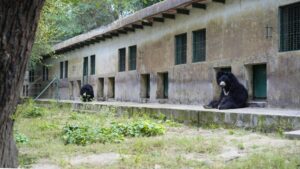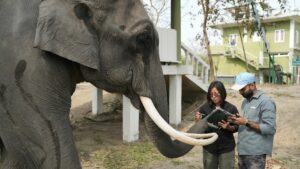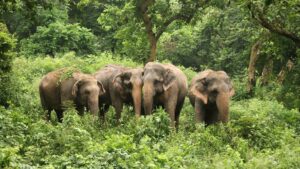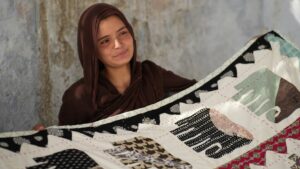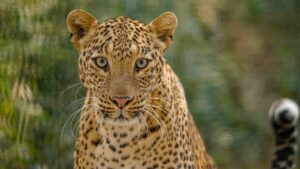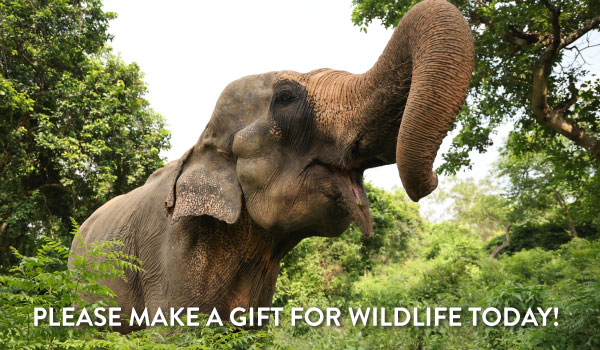“No one will protect what they don’t care about; and no one will care about what they have never experienced.”
― David Attenborough
Conservation is incomplete without awareness. While the backbone of wildlife conservation is research and animal welfare, awareness and outreach events breathe life into these efforts.
Across India, Wildlife SOS teams have been actively engaging communities to bridge the gap between people and wildlife. Through interactive games, informative presentations, captivating field trips and eye-catching merchandise stalls, they continue to nurture curiosity, empathy and responsibility towards nature. Here is a glimpse of the awareness initiatives conducted over the months of July, August and September 2025.
Karnataka
In July, our education team carried out several impactful awareness programmes across various schools and institutions, especially those closer to areas where conflict between humans and the wild occur. On July 4, a leopard awareness session was conducted at Shilinprabodi Government School, Bangalore, where human-leopard conflict situations and mitigation measures that are taken for the same were discussed. The next day, at Greenwood High School, our team set up a science exhibition which featured interactive games and informative boards. Interesting games like sloth bear jigsaw puzzle and memorising state animals of South India were enjoyably played by the students. Meanwhile, on the same day, another team visited Shree Sharda Devi School in the city. The successful interactions led to Dr. Arun A. Sha, Director of Research and Veterinary Operations with Wildlife SOS, being invited to the school to initiate and conduct weekly eco-club sessions every Saturday as well.

On July 10, 16 students from Sarla Birla Academy in Karnataka’s capital city volunteered at Bannerughatta Bear Rescue Centre (BBRC), learning about sloth bear rehabilitation and animal care. The volunteers participated in enrichment making and weeding of the fields where our rescued sloth bears reside.
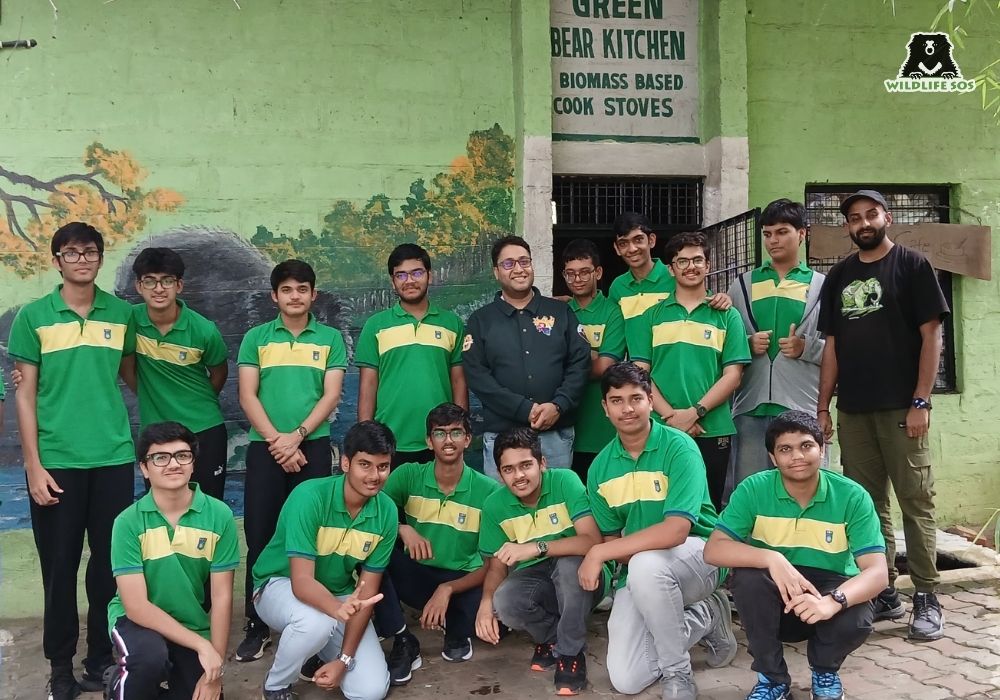
At Bangalore’s Shree Sharda Devi School, our education officers held an interactive discussion about elephants and promoted the Refuse to Ride campaign on July 12. On July 16, our team was present at a snake awareness session at Christ University, students learned to differentiate between venomous and non-venomous snakes.
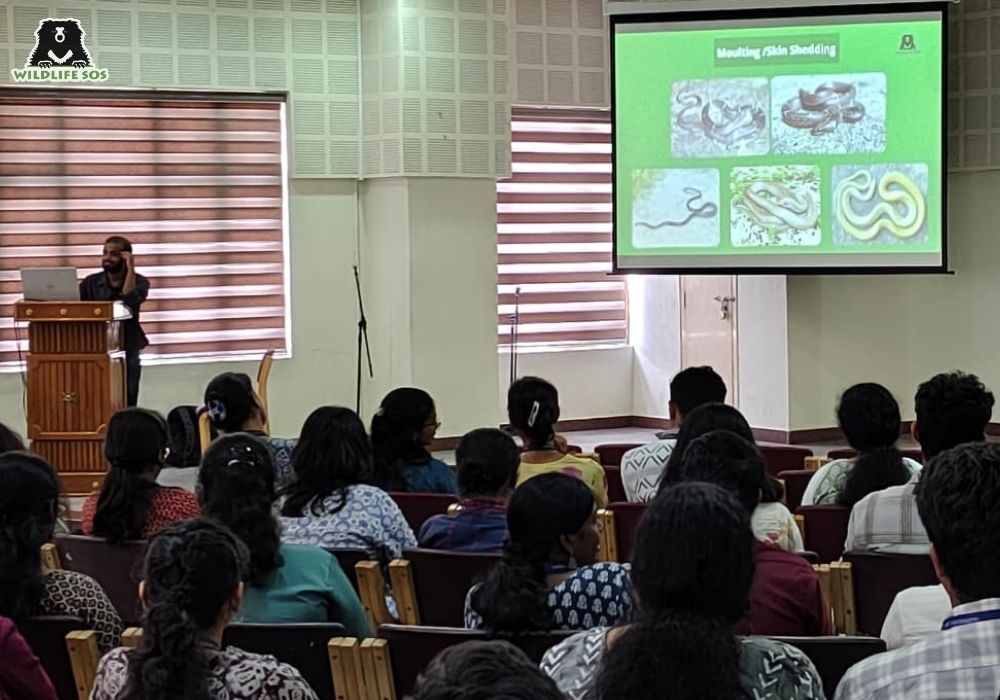
At Purva Highlands Apartments, a residential area in the southern part of Bangalore, the team set up a merchandise stall on July 20 while spreading awareness about human-elephant conflict and mitigation. To mark International Tiger Day, our education team visited Loyola ITI College and Adya Academy on July 28. They discussed instances of human-tiger conflict, adding information about lesser-known tiger subspecies too.
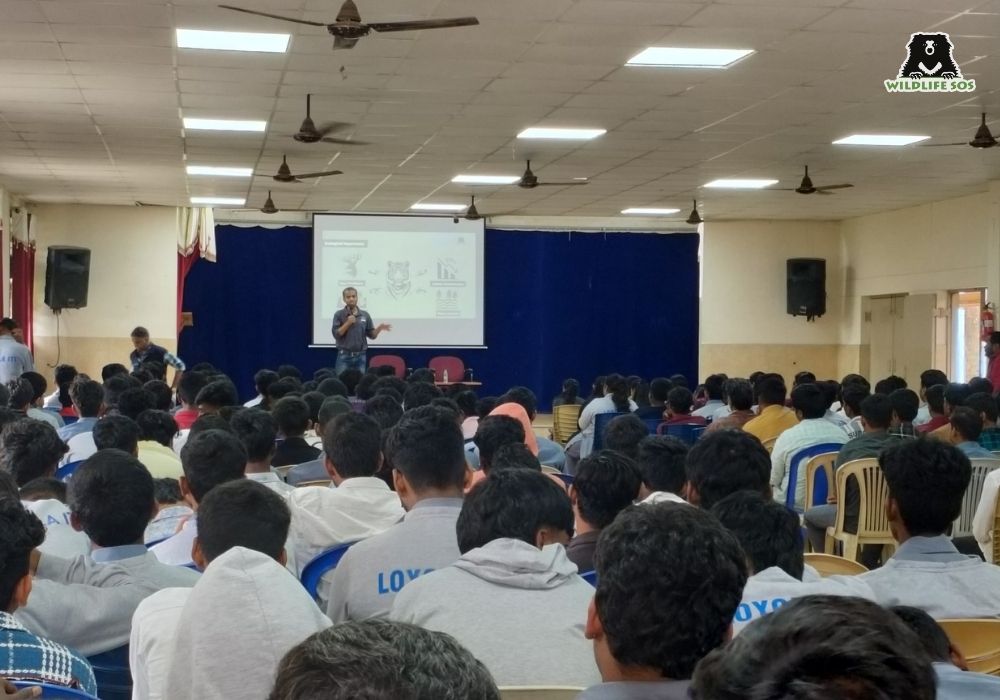
The quarter concluded with Elephant Appreciation Day on September 22, when our education officers visited St. Joseph’s Pre-University College, Bangalore. They discussed what threats elephants face, and raised awareness about the negative health impact elephants face in the tourism industry, which also forces them to carry heavy saddles on their back for tourist rides. The students were also introduced to care given to rescued sloth bears by Wildlife SOS, after which they made a generous contribution of donating peanut butter and honey for the rescued bears at BBRC — a heartfelt gesture that tied empathy with action.
Maharashtra
Between July and September, our team from Manikdoh Leopard Rescue Centre (MLRC) conducted a series of awareness and training sessions across the state, focusing on human-leopard conflict mitigation and community sensitisation.
A knowledge-oriented session on building understanding and safety in human-leopard landscapes was held on July 10. It was attended by 75 students from the College of Agricultural Business Management in Narayangaon, Junnar. On July 14, the team travelled to Alandi Village near Pune. This region is facing major human-leopard conflict due to urban expansions and change in agricultural patterns. A session was carried out with the local people to help increase awareness on the importance of the species.
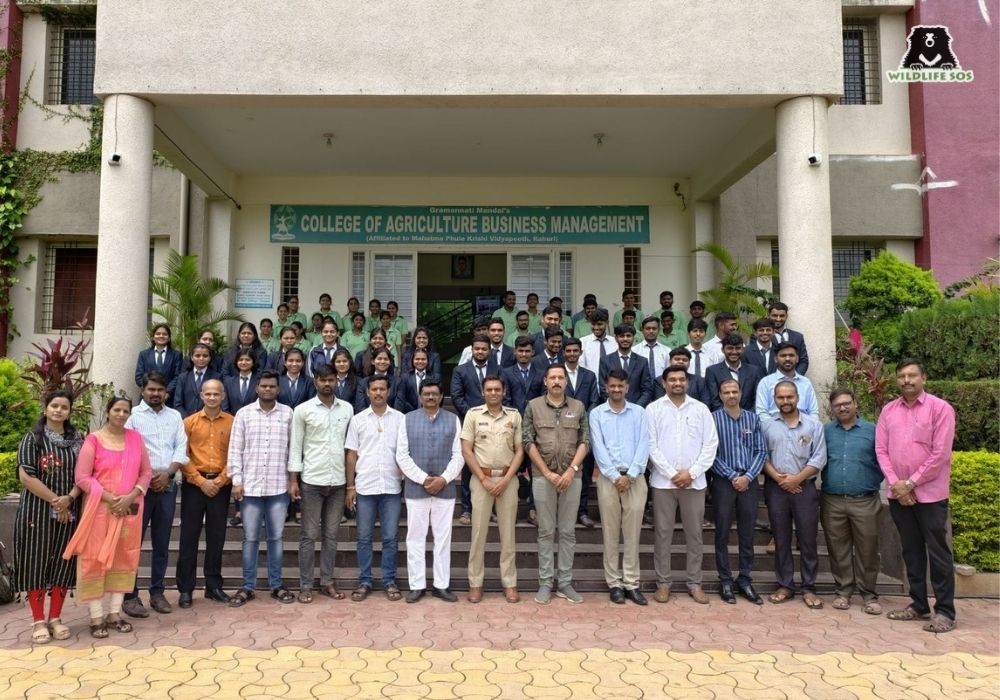
Subsequently on July 16, 50 veterinary students from Yashwantrao Chavan Academy of Development Administration (YASHDA), participated in a session at MLRC, following up on their earlier sessions with Wildlife SOS on wildlife emergency management. Another training and sensitisation programme was conducted on July 22, for the members of Ela Foundation and National Institute of Virology (NIV) Pune, by the MLRC team, with a total of 45 participants.
Five days into August, an event was organised for school students at Takali Haji in the Shirur Range, drawing an audience of 400 including teachers. The Centre Head of MLRC, Mr. Mahendra Dhore, spoke on efforts to ease human-leopard coexistence. On August 7, 75 trainees from the Chikhaldara Forest Academy received training on human-leopard conflict mitigation strategies.
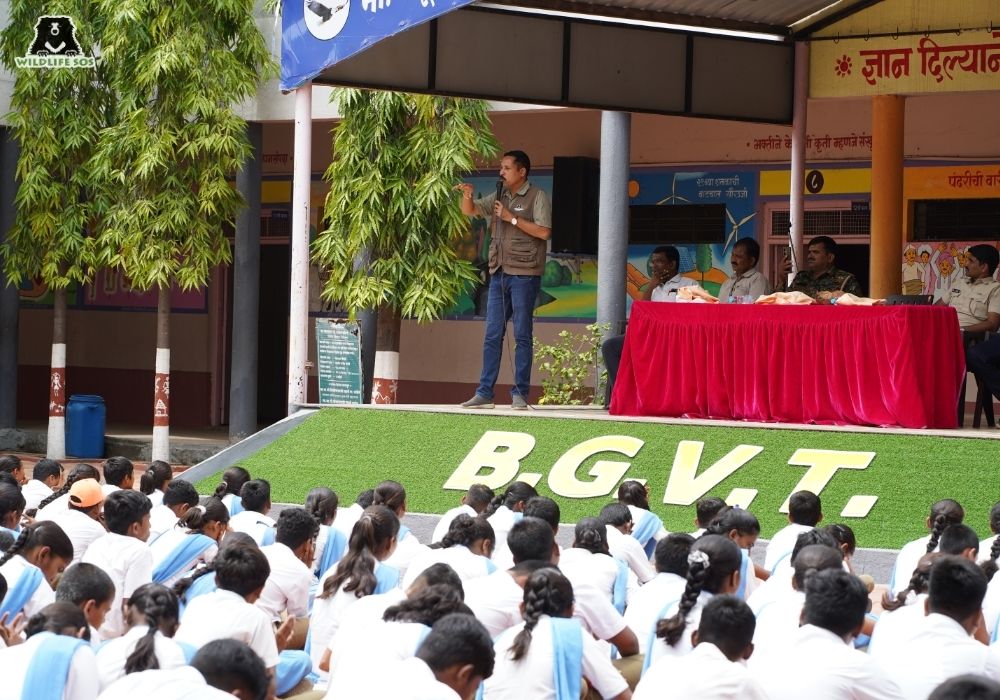
In Mumbai on August 21 and 22, more than 1,000 employees of JPMorgan Chase (JPMC) attended a seminar led by Mr. Mahendra Dhore. The discussion focused on the Open Well Conservation Project that is being carried out to prevent leopards and other animals from accidentally falling into uncovered wells. Conflict mitigation strategies were also discussed at length. A merchandise stall was placed for the JPMC employees so that they could make voluntary contributions to wildlife conservation.
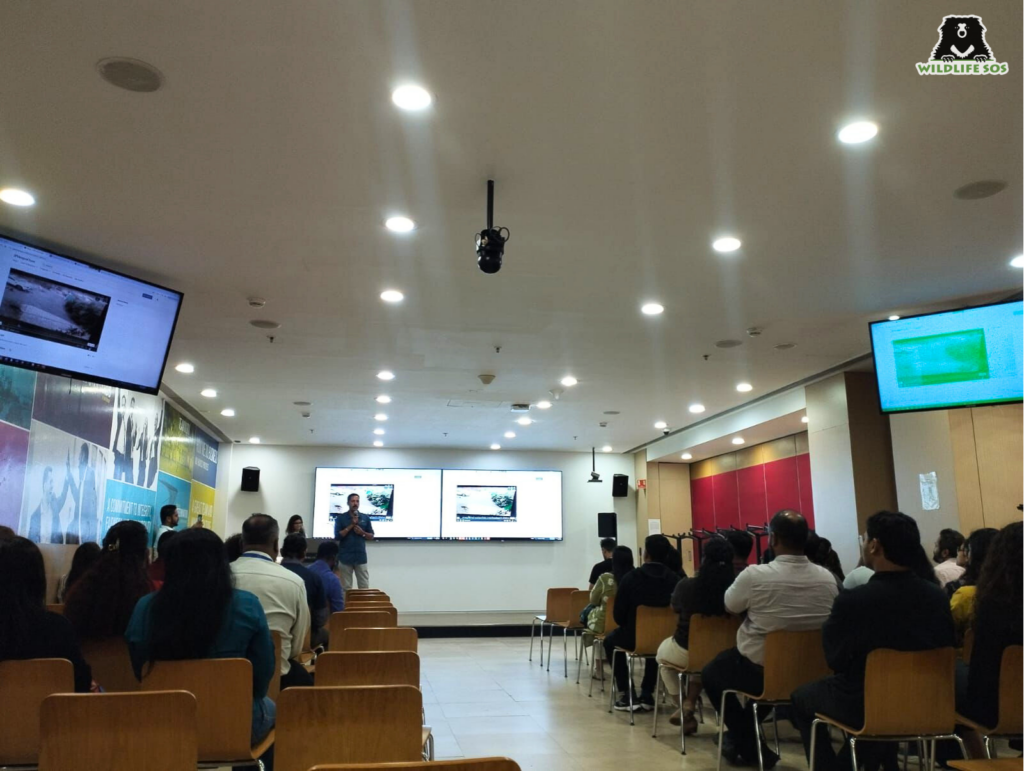
Continuing the outreach efforts, on August 26, awareness programmes were conducted for 600 students from Vidyadham High School in Kanhur Mesai and Gurudev Datt High School in Savindane. On the same day, a training session was held at the Chandrapur Forest Academy of Administration, Development, and Management (CFAAD&M) with 55 Range Forest Officers (RFOs), which highlighted leopard behaviour, safety practices, and coexistence strategies.
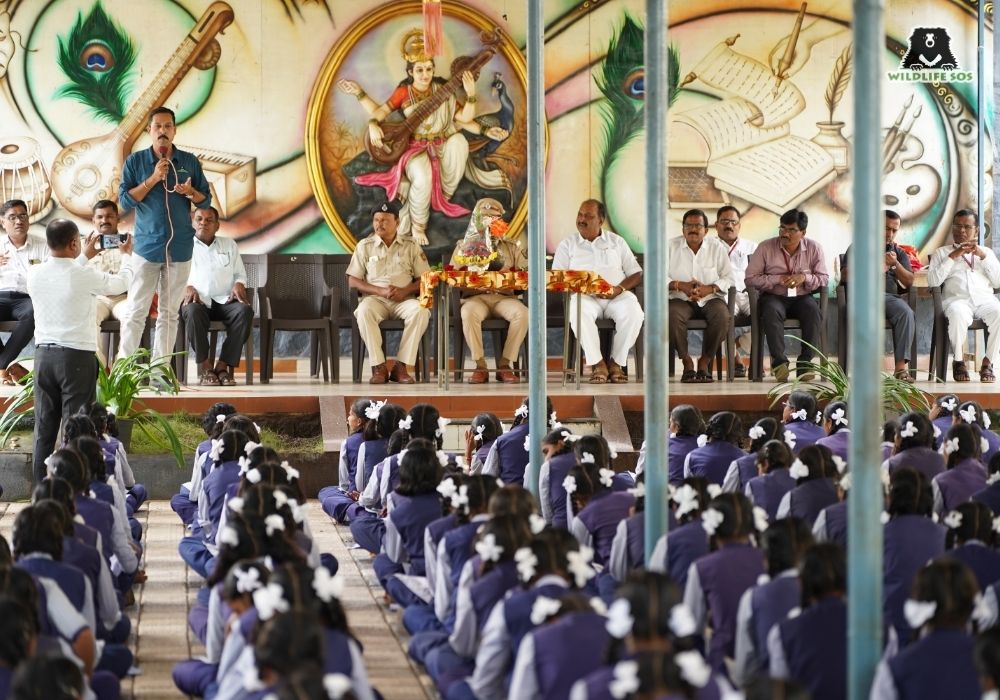
Jammu & Kashmir
In Jammu & Kashmir, a team led by Ms. Aaliya Mir, Education Officer and Manager with Wildlife SOS, has been actively engaging with schools and colleges to raise awareness about local wildlife, conflict mitigation and importance of conservation.
As a part of these efforts, students from Government Girls High School, Sonamullah School, Springfield School and Little Angels School visited Dachigam National Park on July 27, where they learned about the critically endangered Hangul, also known as Kashmiri Stag, as Dachigam is its last remaining wild habitat. They also learned about Asiatic black bears and Himalayan brown bears and how Wildlife SOS contributes to their rescue, rehabilitation and conservation.

Meanwhile, on August 7, at Ayesha Ali Academy in Pulwama, students attended an informative session on human-Himalayan brown bear conflict, learning about preventive measures and responsive strategies to ensure safer coexistence.

Students from several schools near Dachigam participated in a clean-up drive on August 8, engaging in hands-on activities like waste segregation and proper waste disposal. An immersive field visit was organised on September 24 for 200 students of various schools to Hirpora Wildlife Sanctuary, and challenges faced by bear species of the region were shared with them.
Delhi-NCR
Our team in the national capital has also been busy visiting and setting up programmes across various parts of Delhi-NCR.
From July 18 to 20, our outreach team set up a merchandise booth and actively engaged with visitors at the Pacific Mall, Tagore Garden, spreading awareness about wildlife conservation. They also encouraged people to volunteer for rescued elephants and sloth bears at our rescue centres. The team replicated this successful model at Rakhi Fest in DLF Avenue, Saket, from August 4 to 6, drawing enthusiastic participation from visitors.
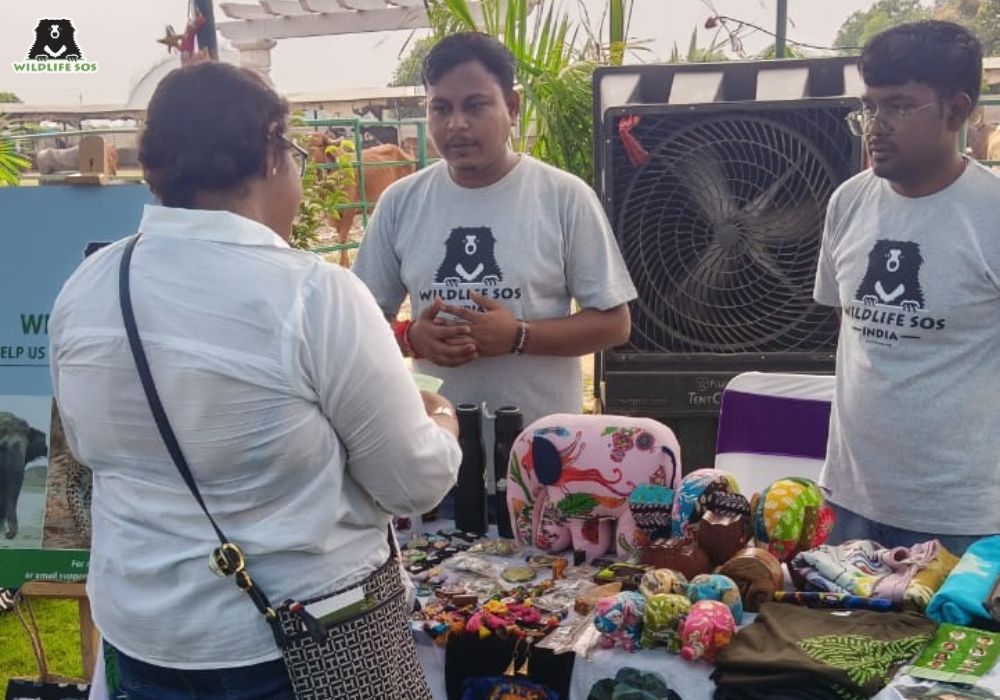
On August 30, a reptile awareness workshop was conducted in Silver City, a residential area in Noida. The team busted myths surrounding snakes while speaking about the various snakes found in India. A discussion on other reptiles such as monitor lizards were also a part of the presentation. A merchandise stall was set up as well, which brought in an encouraging footfall of around 100 residents.
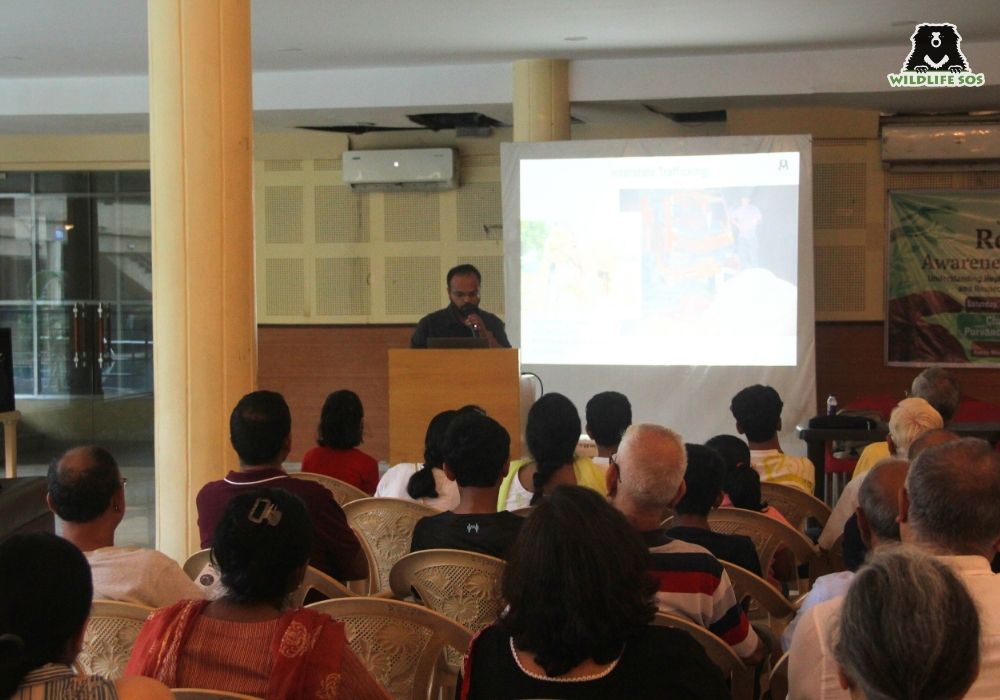
Uttar Pradesh
In collaboration with the Uttar Pradesh Forest Department, Wildlife SOS, participated in a public event at Deendayal Dham by setting up a wildlife awareness stall on September 19. With over 1,000 visitors at the event, our large booth served as a valuable platform to spread awareness about rescue operations. A tranquilliser gun was also displayed to help visitors understand its use in safe animal rescues. The event was graced by the Hon’ble Chief Minister of Uttar Pradesh, adding further prominence to the occasion.
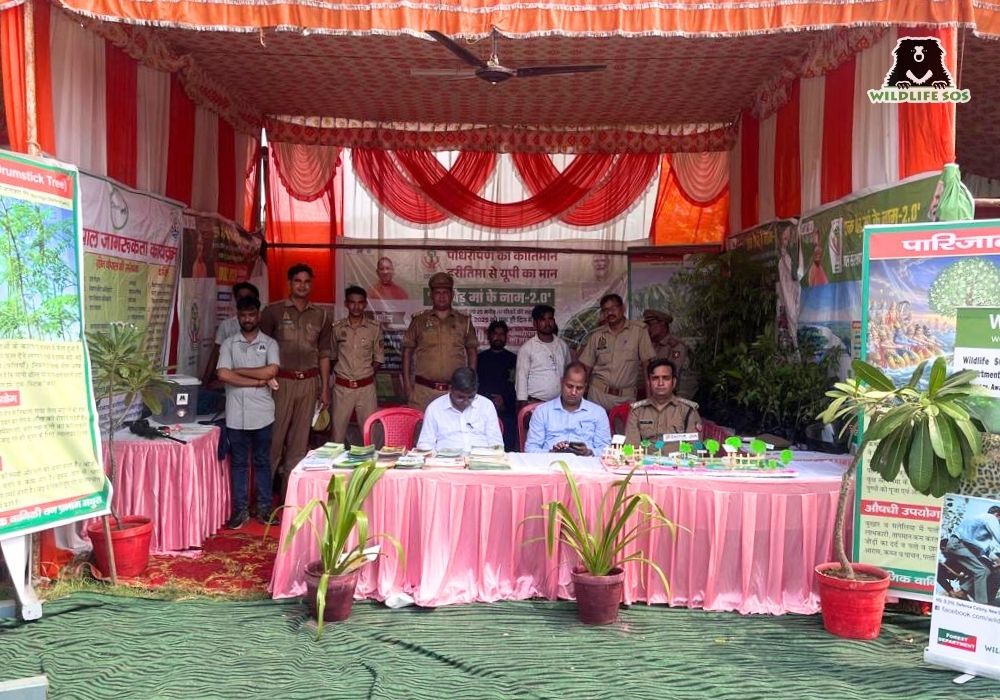
On September 24, our team participated in a cultural celebration — a dandiya programme at Bhim Rao Ambedkar University. There was an awareness and merchandise stall setup at the event where the team had the opportunity to interact with people of all age groups willing to know more about Wildlife SOS projects, and the rescue and rehabilitation of wild animals. Hotline numbers were also shared to encourage public participation in reporting any instance of wildlife in distress.
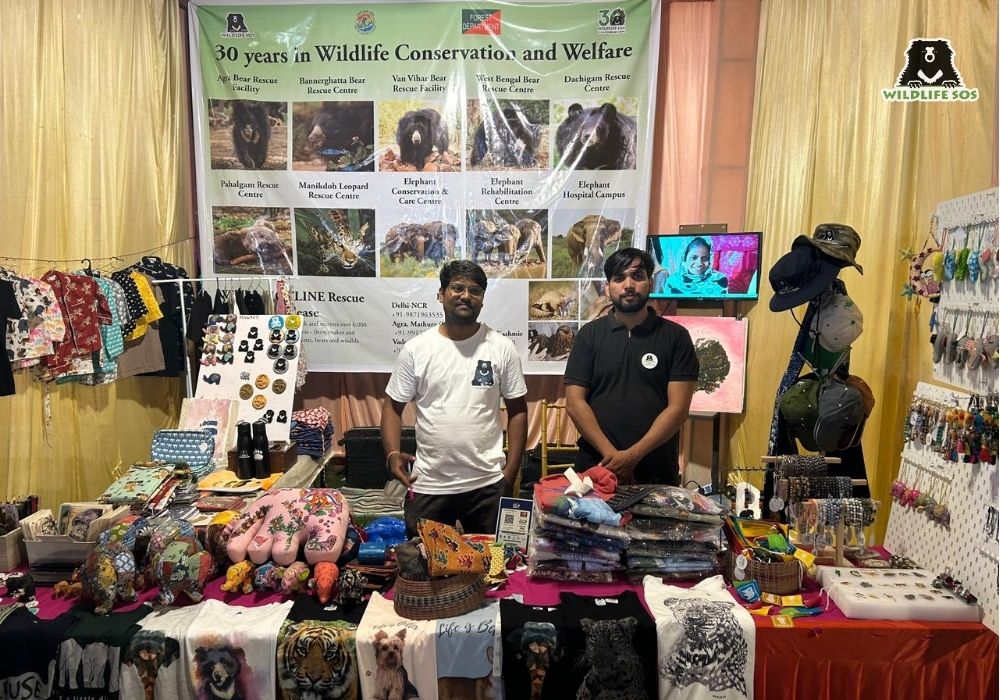
On August 23, in celebration of Sawan Utsav 2025, Wildlife SOS in collaboration with Beejom, an animal sanctuary and sustainable farm, connected with local communities in Tajpur, Bulandshahr, spreading essential awareness about wildlife that can be found in the state and our conservation efforts for them.
Telangana
Wildlife SOS also extended its outreach and awareness sessions in Telangana. On August 22, an animal care drive was conducted by Wildlife SOS for the employees of JP Morgan Chase (JPMC) in Hyderabad. The members present for the event were guided through information on animal welfare and how their presence impacts the ecosystem positively.
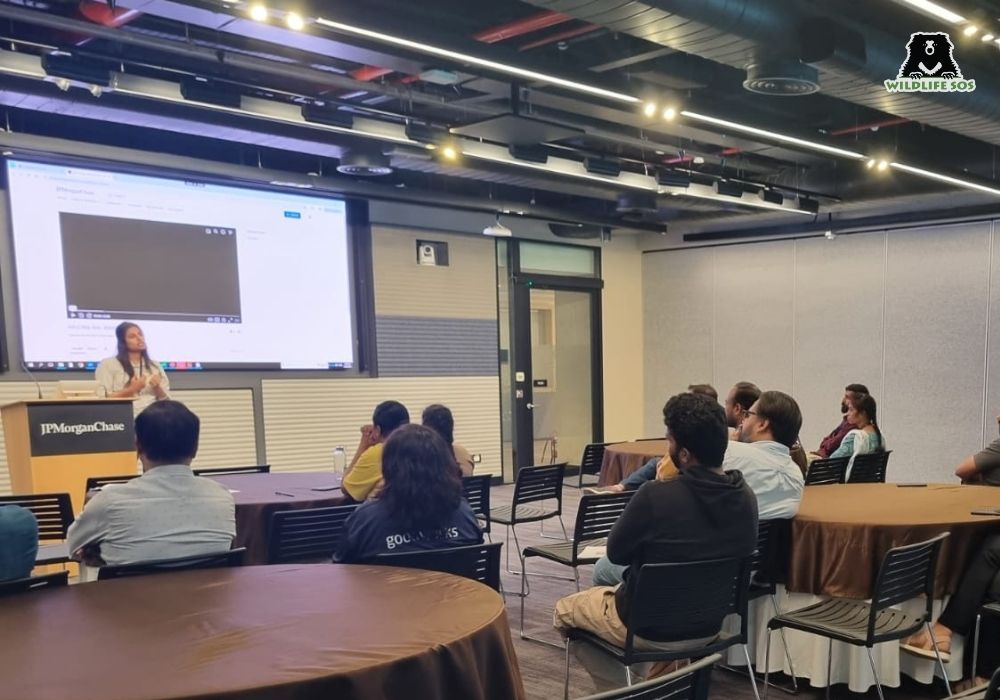
Gujarat
As part of training and outreach programmes held in Gujarat, Wildlife SOS visited the Homeopathic Medical College in Vadodara on July 1. The presentation was led by Mr. Raj Bhavsar, Project Coordinator at Wildlife SOS and President of GSPCA (Gujarat Society for Prevention of Cruelty to Animals). He included snakes that are found in the region in his talk, and busted the myths that encircle them. Discussions took place on the importance of conserving wildlife and the dos and don’ts if or when one faces wildlife. In addition, illegal pet ownership and the impact it has on native species were key topics touched upon.

On August 2, National Cadet Corps (NCC) from Ahmedabad attended a training programme conducted by Wildlife SOS in the campus of National Disaster Response Force (NDRF). The session focused on how to manage wildlife during natural calamities. They also took part in a discussion about snakes and how shrinking forests are leading to the disappearance of the species.
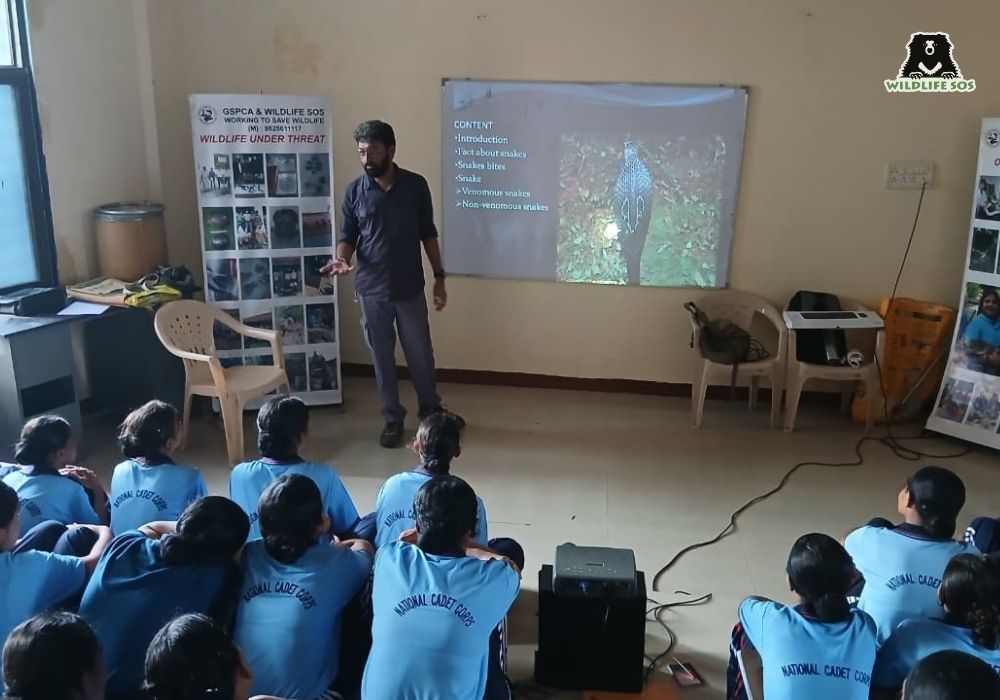
NCC from Rajpipala on August 29 and NDRF team from Vadodara on September 14 participated in similar training sessions that focused on rescue of wildlife during disasters.
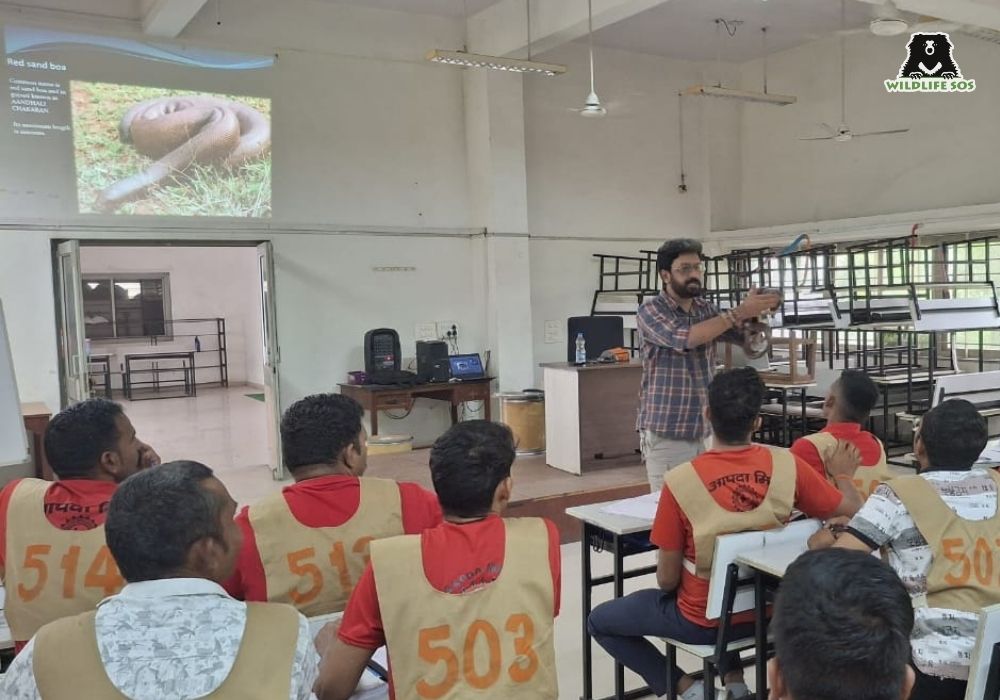
Wildlife SOS has helped countless young minds and working professionals gain a deeper understanding of the importance of India’s wildlife and the challenges they face. These programmes helped foster empathy and also empowered the participants to take a stand for wildlife in their capacity.
If you would like to be part of engaging and insightful sessions about wild animals in your school, university, or workplace, and and explore ways to coexist peacefully with them, do reach out to Wildlife SOS at education@wildlifesos.org.

